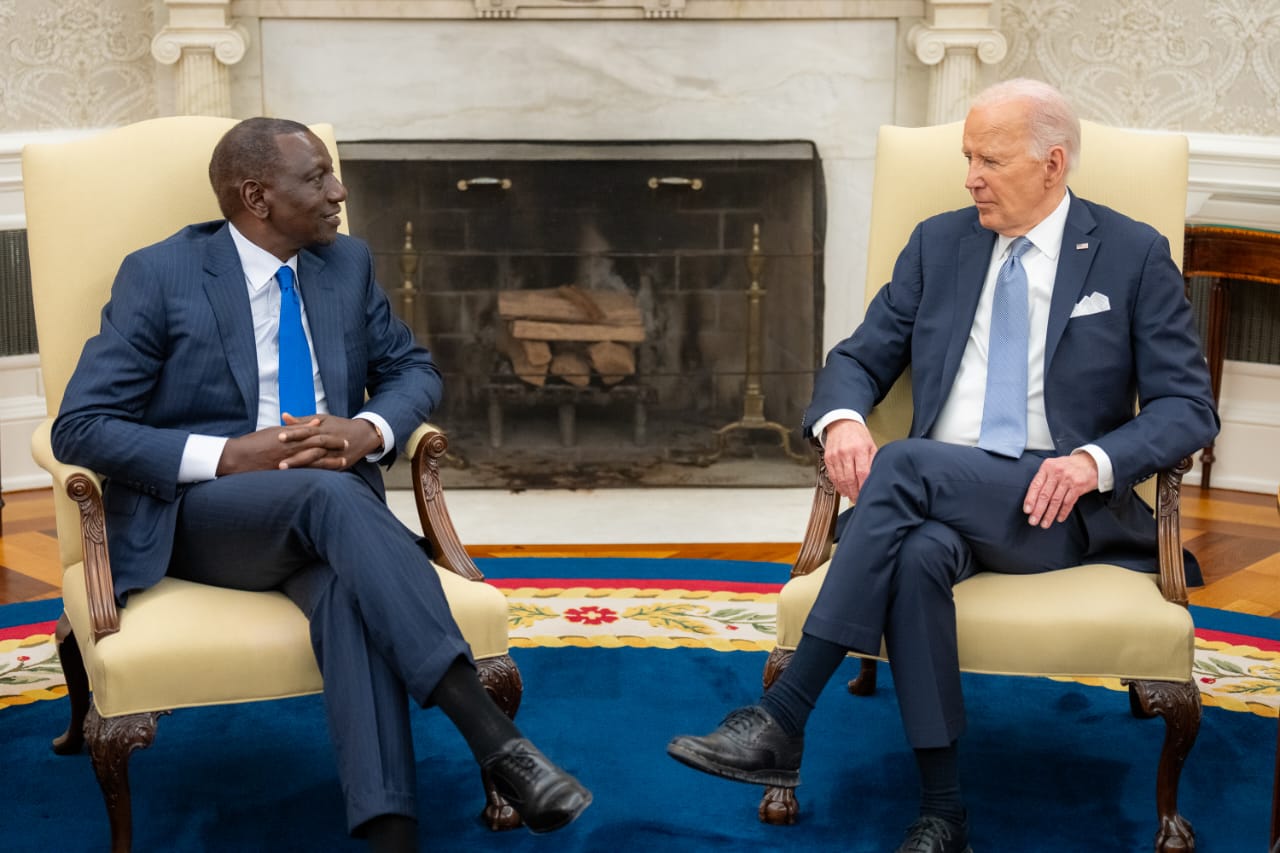
Kenya to gain from US health partnerships following Ruto’s State Visit

Kenya is set to benefit from a series of health partnerships with the United States following President William Ruto’s historic State Visit.
A statement from the White House indicated that the partnerships aim to help Kenya tackle pressing health challenges, enhance global health security, and support local manufacturing capacities.

To strengthen global health security, Kenya and United States have formalised a new partnership between the US Centers for Disease Control and Prevention (CDC), through which the two governments plan to roll out a customised Public Health Emergency Management training program in all 47 counties.
The agreement will also focus on sharing information, identifying best practices, and developing the Kenyan National Public Health Institute.
To enhance the manufacturing of medical products, the US committed $2.3 million to support a Kenyan company, Revital Healthcare, in developing diagnostic tests for HIV, malaria, hepatitis B and C, dengue, and pregnancy.
The funding will also enable the construction of a manufacturing plant capable of producing 240 million tests per year.
“USAID and the Kenyan Ministry of Health are partnering to equip all neonatal clinics with Revital-made continuous positive airway pressure machines for babies requiring respiratory support,” the statement reads.
Kenya will continue to benefit from the $7 billion support from the US President’s Emergency Plan for AIDS Relief (PEPFAR) in efforts to end HIV as a public health threat in Kenya by 2027.
To reduce the impact of malaria, the US President’s Malaria Initiative (PMI) is also expanding its procurement of pharmaceutical supplies from Kenyan manufacturers, with a plan to buy up to five million malaria treatments and 475,000 preventive doses in 2024.
Additionally, the US International Development Finance Corporation (DFC) provided a $10 million direct loan to the Kenyan company Hewa Tele, which supplies affordable and regular medical oxygen to healthcare facilities in Africa.
The US further reaffirmed its longstanding partnership between the CDC and the Kenyan Medical Research Institute (KEMRI) by providing $12.9 million to support research at KEMRI, focusing on a wide range of public health issues including malaria, HIV, tuberculosis, and COVID-19.
The collaboration aims to expand surveillance, answer critical public health questions, and introduce novel diagnostic methods.
To advance Kenya’s digital health goals, the US committed over $31 million to set up a digital superhighway to enable a holistic view of healthcare delivery.
This will include $4 million from USAID Power Africa for solar power solutions in health facilities and initiatives to strengthen community and facility information systems to improve patient care and expand access to emergency medical services for mothers and newborn.

